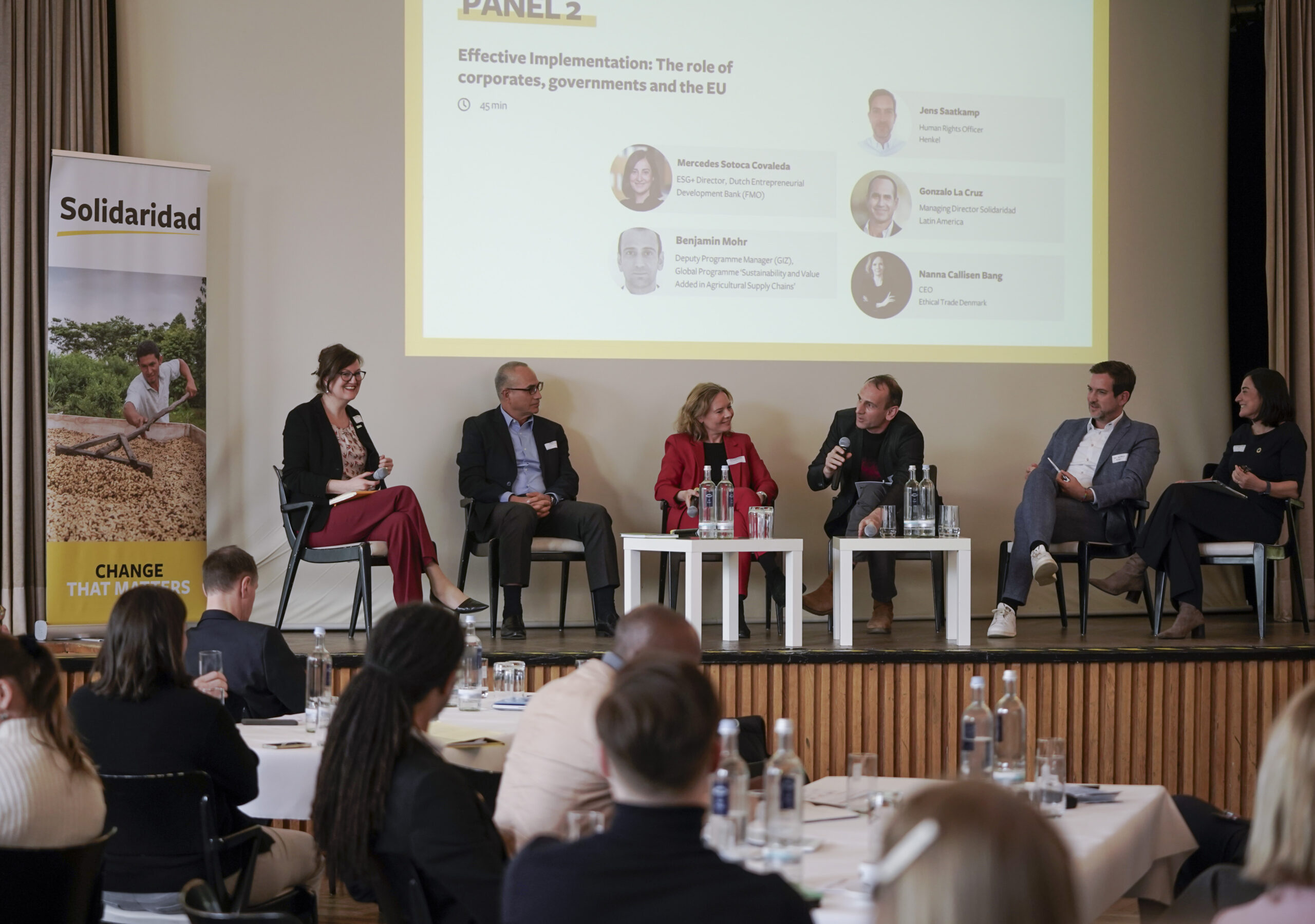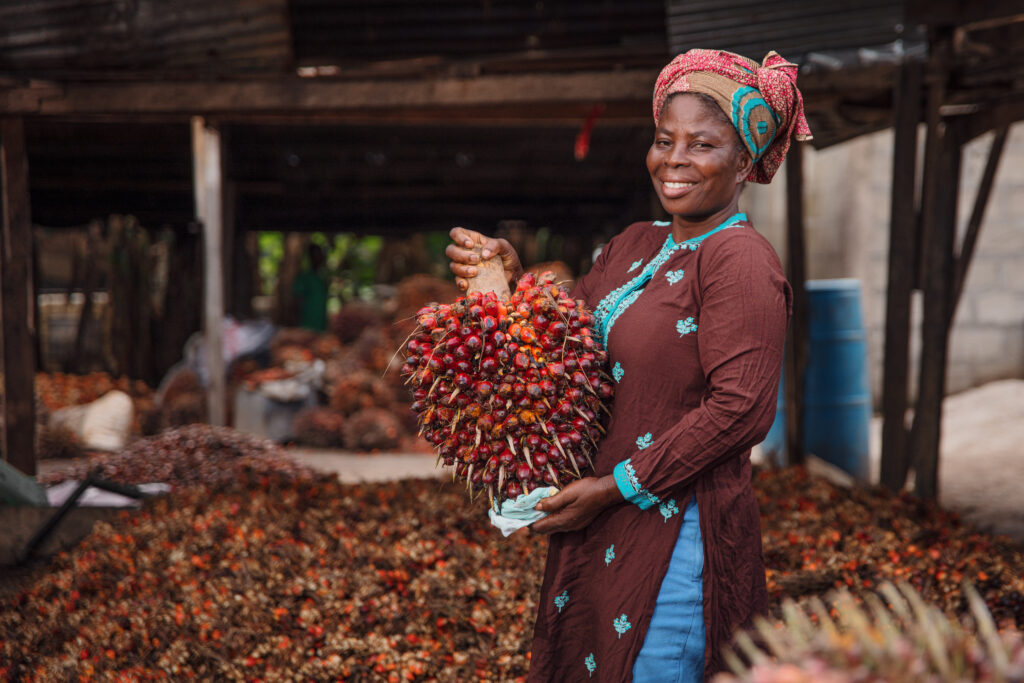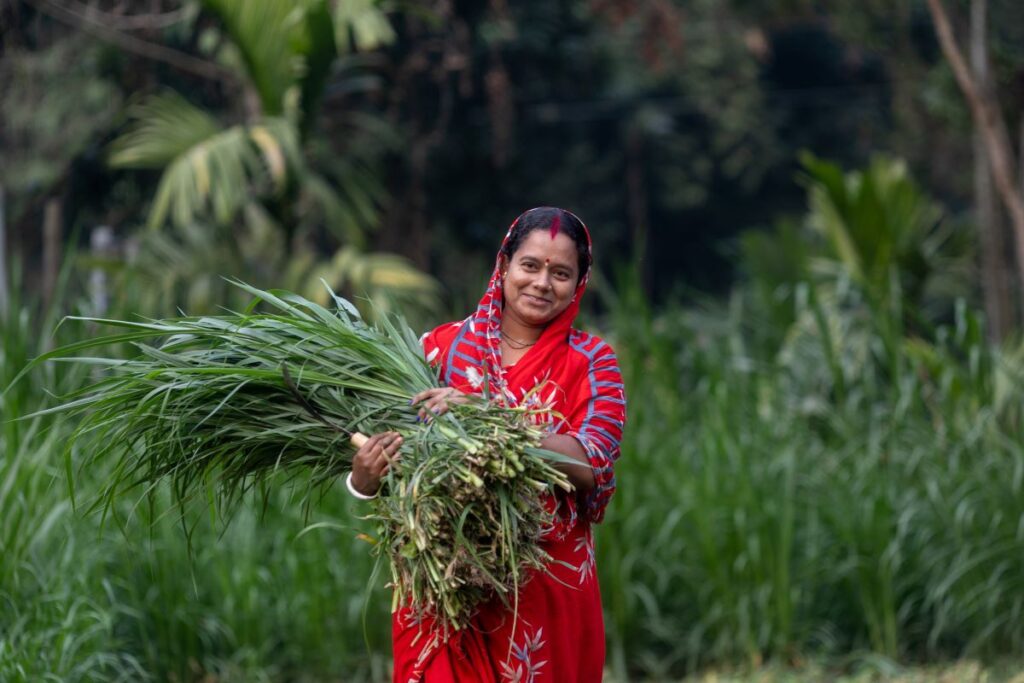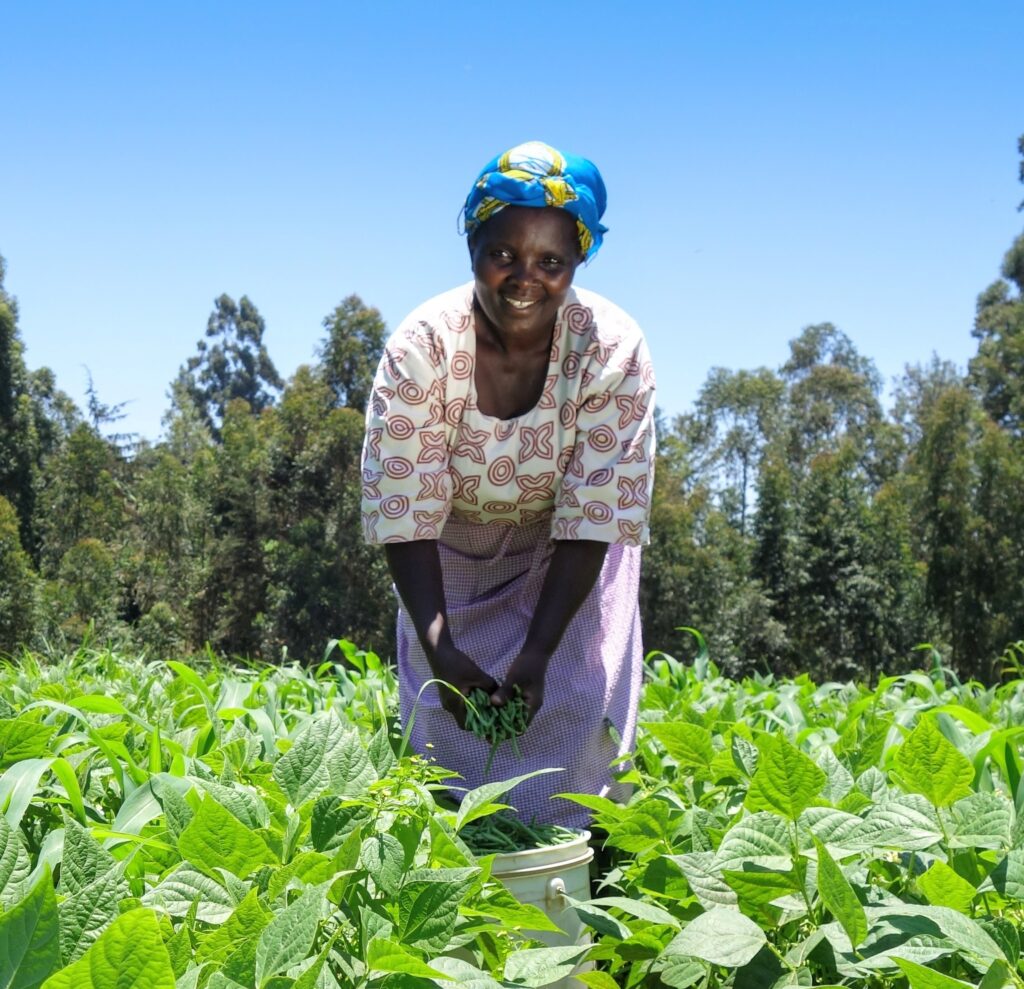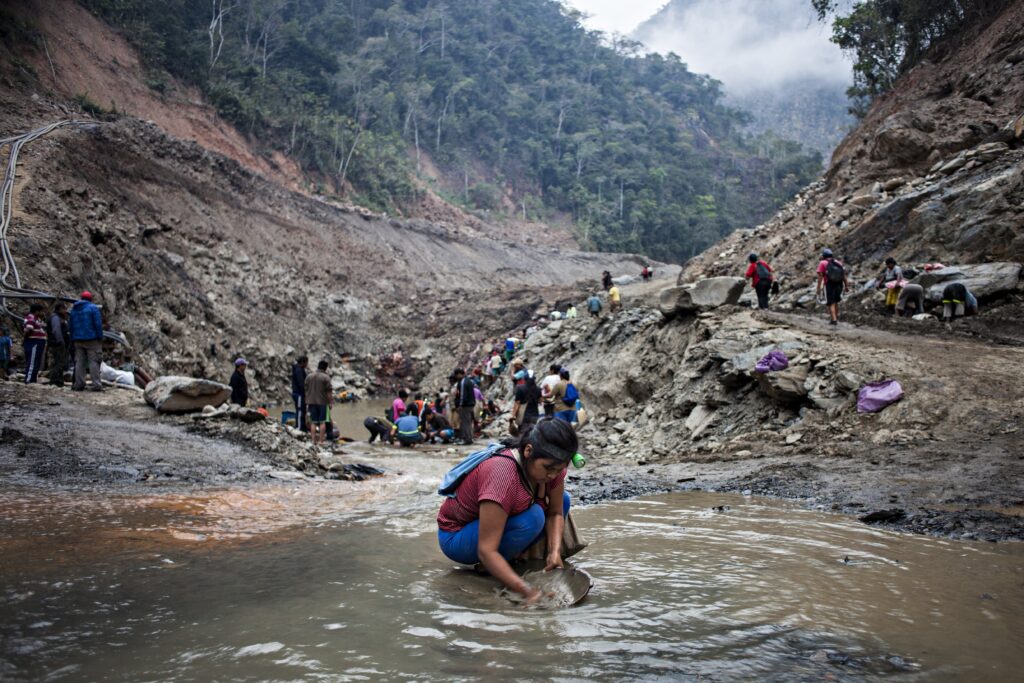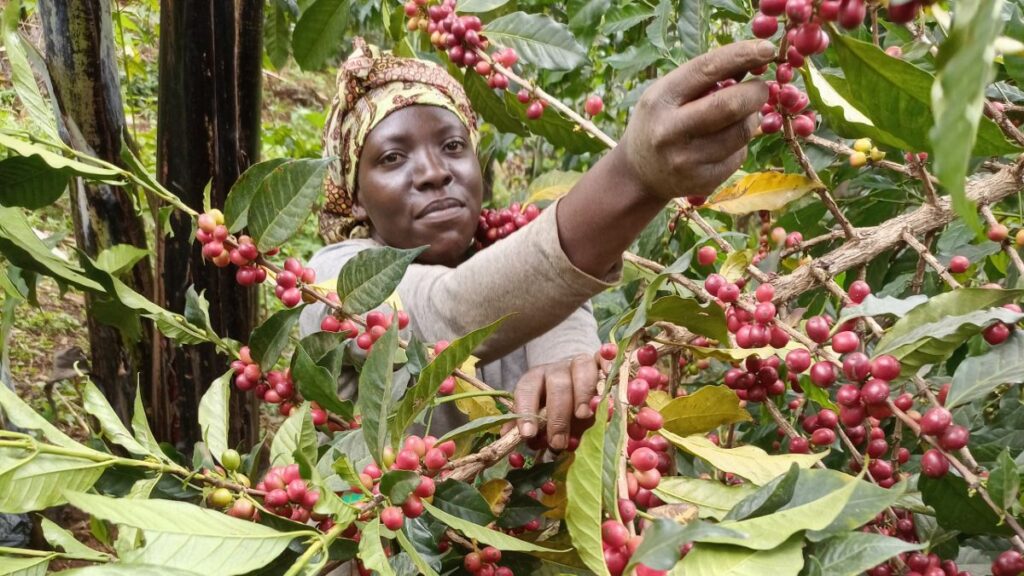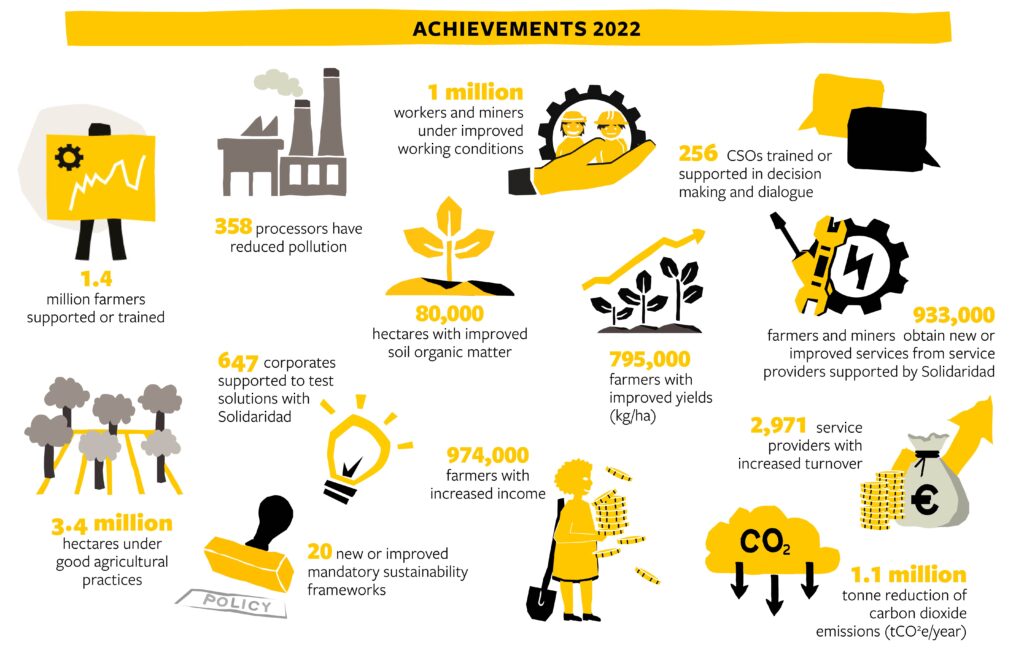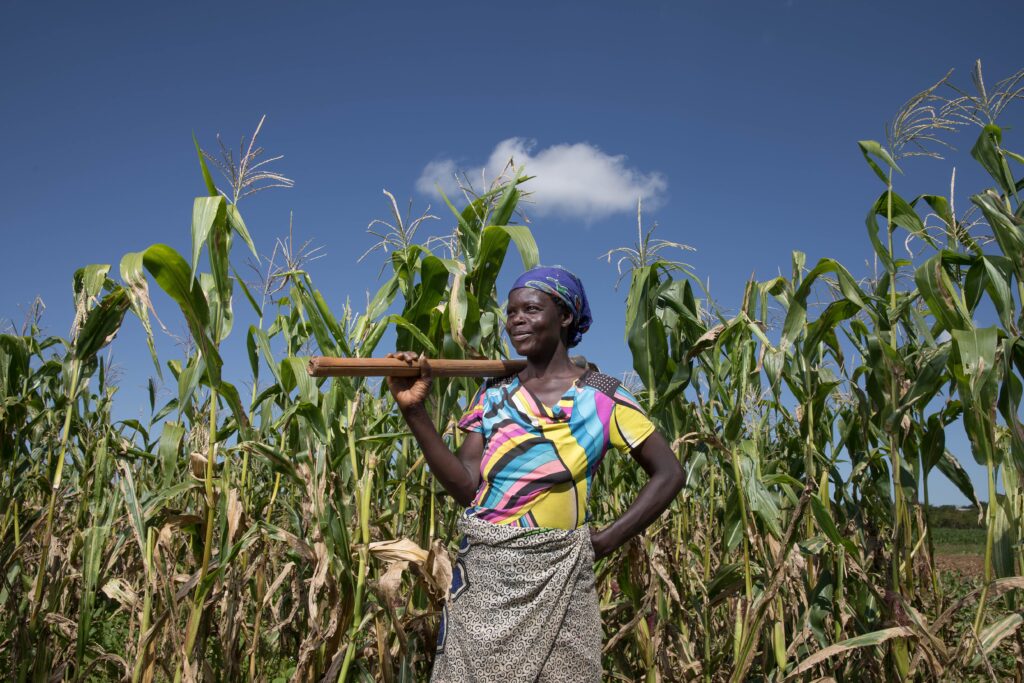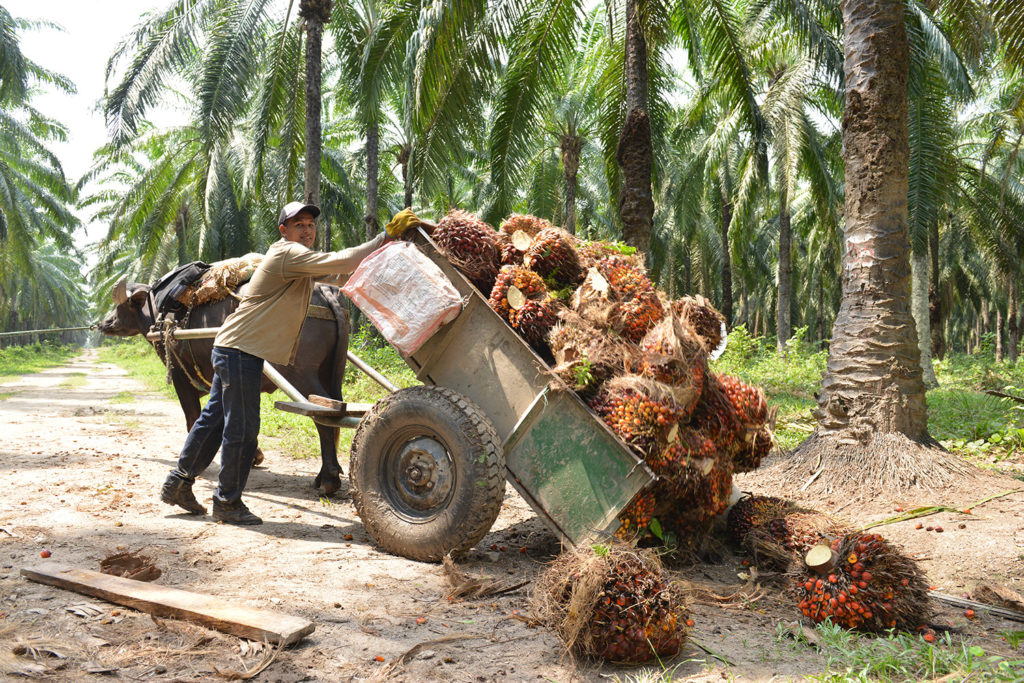Image above: As part of two panels, the guests spoke about the hurdles, but also about what is needed for the successful implementation of European supply chain laws. From left to right: Melanie Rutten-Sülz, Country Manager, Solidaridad Germany; Gonzalo La Cruz, Director Solidaridad Latin America; Nanna Callisen Bang, Executive Director at Ethical Trade Denmark; Benjamin Mohr, Deputy Programme Manager, Global Programme ‘Sustainability and Value Added in Agricultural Supply Chains’, GIZ; Jens Saatkamp, Human Rights Officer, Henkel; Mercedes Sotoca Covaleda, ESG+ Director, Dutch Entrepreneurial Development Bank (FMO).
On 24 April the European Parliament passed the EU’s Corporate Sustainability Due Diligence Directive (CSDDD). This law will make it mandatory for large companies in the EU to address impacts on human rights and the environment in their operations and supply chains. This law will put living income, living wages and responsible purchasing practices on the agenda of all large corporations.
The timing couldn’t be better: the very next day Solidaridad hosted a conference to discuss: Mandatory Due Diligence in Supply Chains: Leveraging EU Legislation to Make a Positive Impact for Small Scale Producers.
The goal of this conference, held in Düsseldorf, was to bring together representatives from the South and the North, from business and government, and from civil society, to ask the question: what does an inclusive and effective mandatory due diligence framework actually look like? Basically, how will the EUDR and CSDDD act in the real world, and what is needed from all of us to ensure a successful and impactful implementation?
Different Voices, One Message: Collaborate for Progress
As you can imagine, when you bring together speakers with such a wide range of expertise, you don’t get one easy answer, you get a lot of hard ones. But if one thing did come through, it was this: It is all about collaboration.
To paraphrase Aldo Cristiano, Head of Institutional Affairs and Sustainability at Ferrero Germany, to get the globe moving, we all need to be turning in the same direction. And ‘we’ doesn’t just mean civil society and governments in consuming countries in Europe. And it doesn’t just mean major companies operating across the globe. No, to turn the world, we are going to need to have partnerships with people everywhere. We need to work with governments in producing countries, and we need to work with the small-scale producers that often go overlooked.
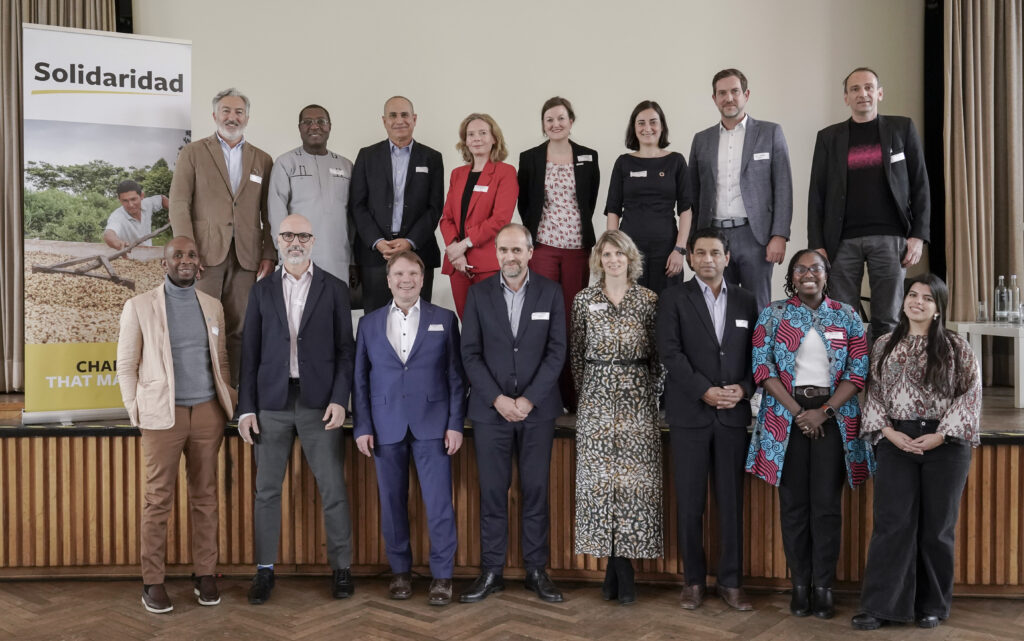
Bottom row, left to right: Shungu Kanyemba, Andre de Freitas, Stefan Dierks, Marchel Germann, Heske Verburg, Shatadru Chattopadhayay, Rachel Wanyoike, Catarina Vieira.
Rachel Wanyoike, Managing Director of Solidaridad East and Central Africa, brought the perspective of small-scale producers:
They already face administrative burdens, they already face legal hurdles. Simply adding to their costs in order to give them the privilege of selling to Europe would be unfair, and ultimately unsuccessful, if our goal is really a better, more sustainable world.’
Rachel Wanyoike, Managing Director of Solidaridad East and Central Africa
And Stefan Dierks, Director of Sustainability Strategy at Melitta Group, put it well when he spoke about “co-creation”. Drawing on his experience in working with coffee farmers, he reminded us that legislation from abroad and above does nothing if you do not look at local circumstances and if you don’t involve people in the region. The focus needs to be on working with small-scale producers on co-creating the systems and capacities they will need in order to transition to more sustainable and humanitarian producing practices. And ensure the admin burden and the costs will not be pushed upstream in the value chain.
To put it more concretely, mandatory due diligence needs a few things to work:
1. Partnerships
Partnerships will be pivotal across all levels. The introduction of new supply chain laws presents an opportunity for enhanced collaboration between sourcing and producing nations, necessitating substantial support and accompanying measures. It’s imperative for European governments and companies to engage in more meaningful dialogues with representatives from producing nations. Shatadru Chattopadhayay, Managing Director of Solidaridad Asia, emphasized the importance of building upon existing national standards respectfully to achieve harmonization.
Marchel Germann, Ambassador for Business and Development and Director of Sustainable Economic Development at the Ministry of Foreign Affairs of the Netherlands, highlighted that while EU Member States initiated due diligence legislation, its success demands participation from all actors along the value chain.
As discussed extensively in the conference, EU member states must support the CSDDD through partnerships with trading partners, with crucial involvement from the most affected countries to drive tangible change. Companies need to ensure transparency throughout their supply chains, fostering well-informed dialogue among stakeholders. Collaboration among companies, leveraging pre-competitive synergies, is vital to addressing shared challenges. Multi-Stakeholder Initiatives (MSIs) can facilitate knowledge exchange, data sharing, and the implementation of effective solutions.
Nanna Callisen Bang, Executive Director at Ethical Trade Denmark, emphasized the need for investments, capacity building, and partnerships to support producers and workers in the global south. She advocated for MSIs to develop concrete tools and practices and serve as platforms for dialogue across public and private sectors.
While criticisms and concerns surround these laws, Marchel views them as significant opportunities. He advocates for engagement and high-quality assistance, emphasizing the importance of listening to local stakeholders and understanding regional specificities.
2. Accompanying measures and tools
Guidance for all stakeholders in the law is crucial and should be widely disseminated, with the development of help desk tools tailored to support various actors in supply chains, from government bodies to small farmers. These tools should address traceability issues, build capacity, and facilitate knowledge sharing, ensuring that mandatory due diligence is actionable and not merely rhetoric for vulnerable groups. Benjamin Mohr from GIZ emphasizes the significance of international cooperation in successfully introducing and implementing such laws.
Accompanying measures are essential for effective implementation. The EU and its member states must prioritize providing financial and technical support to rights holders, economic actors in global value chains, and partner countries. Farmers’ insights underscore the importance of addressing root causes of poverty and promoting sustainable practices for due diligence to be effective. While accompanying measures cannot resolve all issues, they can prevent further burdens on those already marginalized.
Continuous monitoring of the laws and accompanying measures is imperative to ensure support reaches those in need and to evaluate whether legislation achieves its inclusive goals. Establishing a feedback loop will facilitate adaptive measures as understanding of due diligence evolves.
The European Commission’s Directorate-General for International Partnerships (DG INTPA) and the International Trade Centre (ITC) have in co-creation with relevant stakeholders introduced a typology of eight categories for accompanying measures. Whilst all of them are relevant and needed, we spoke to smallholder farmers and their representatives about what else is needed. And they responded:
• Information and guidance on due diligence process and legal requirements;
• Industry collaboration and stakeholder engagement;
• Producer/Supplier Capacity Building and Empowerment; and
• Regulatory environment and support ecosystem in partner countries
Read more about the crucial measures that the European Union and member states should develop for an effective implementation of the EU Corporate Sustainability Due Diligence Directive (CSDDD), particularly focusing on supporting smallholder farmers and their communities outside the EU.
3. Ambitious and dedicated corporate support
An inclusive mandatory due diligence system places significant demands on all chain actors, particularly large companies, who must exceed the law’s requirements. If compliance becomes merely a checkbox exercise, it fails to fulfill companies’ obligations to their supply chain workers, potentially leading to disengagement from challenging regions, harming those the laws aim to protect.
While the CSDDD discourages disengagement except as a last resort, companies play a pivotal role. They must lead in establishing robust due diligence processes through dialogue with suppliers, bridging wage and income gaps, and critically evaluating business models and purchasing practices. Companies must embrace co-responsibility, rather than shifting risk management costs to suppliers. Encouragingly, companies at our conference expressed readiness for this challenge, echoing Aldo’s sentiment: “We can do this!”
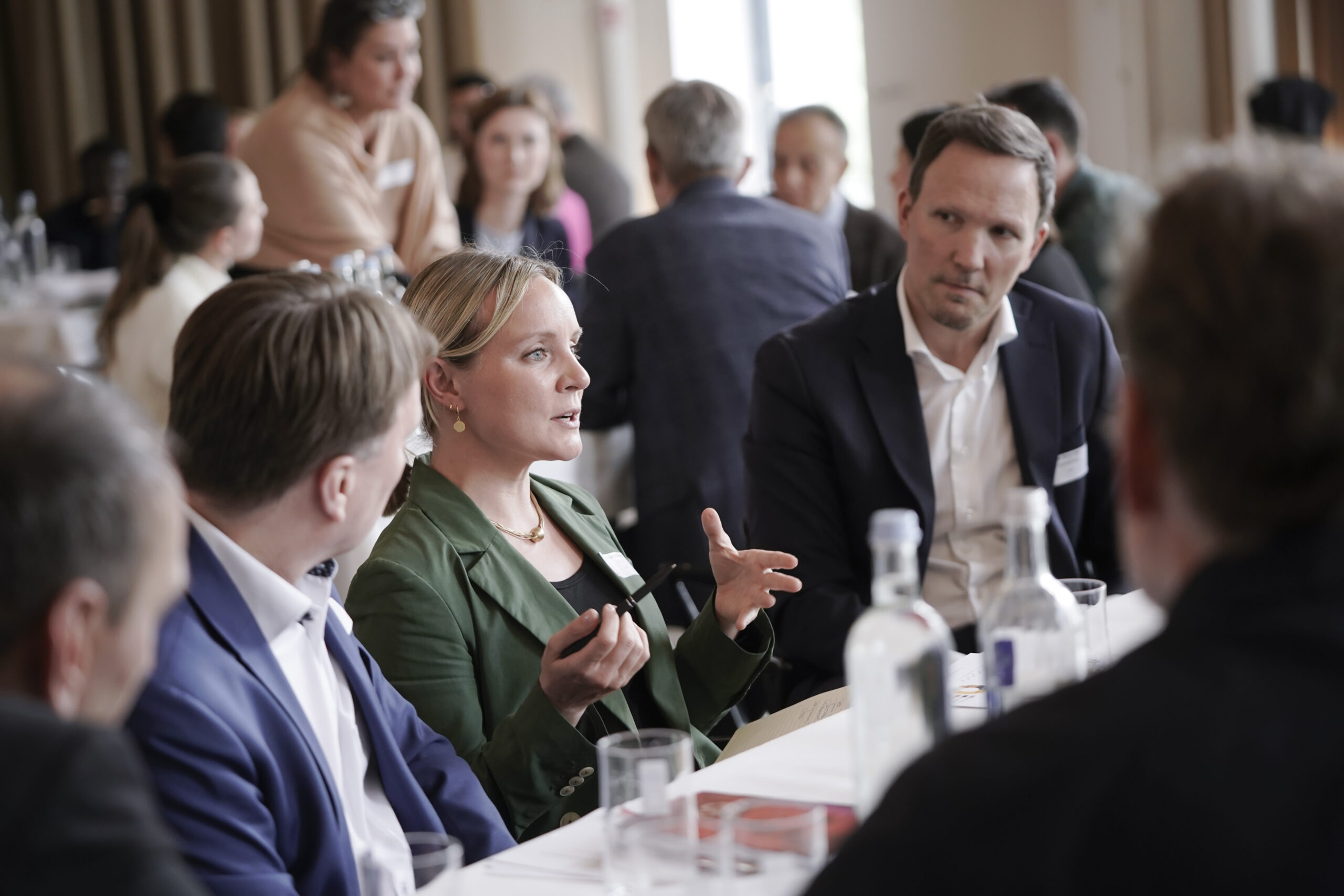
Turning the globe
And we can, if we can address the issues discussed during this conference. But these are not just some details that we can worry about later. Inclusive and effective due diligence means that we all need to make sure that the details don’t mute the impact we are looking for. From the perspective of the producing countries outside of Europe, this legislation should not be about ensuring European consumers can buy nice things with good conscience, it should not be about cleaning supply chains linked to Europe; no, instead it should be about really reaching impact on the ground. And that means moving from punishing poor performance on human rights to incentivizing continuous improvement. And this can only be achieved if we work together towards a real global movement. Together we can turn the globe. The livelihoods of millions of farmers and their families depend on it.

